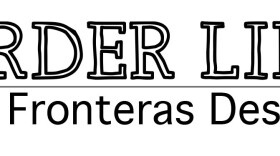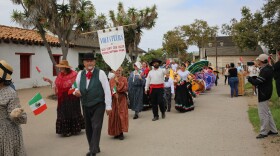One of the most powerful documentaries I’ve seen in recent years is “Presunto Culpable” or “Presumed Guilty,” which tells the story of a young man wrongly accused of murder in Mexico City.
Mexico’s justice system comes off looking pretty bad in the film. The judge asks no questions; the prosecutor appears completely inept; and the prisoner himself questions the one witness, who eventually concedes to not knowing if he had correctly identified the perpetrator.
Still, the judge rules against the young man. An appeals court finally overturns the case and sets him free.
Individuals are wrongly imprisoned all over the world, and no country’s justice system is perfect. So I was glad to hear that a couple of professors at San Diego’s California Western School of Law recently helped launch the Latin American Innocence Network, or Redinocente.
It’s modeled on the California Innocence Project, a clinical program at California Western School of Law in which students and attorneys work on cases where there is strong evidence suggesting a convicted person is actually innocent.
I talked via Skype to Justin Brooks, one of the professors behind Redinocente and a founder of the California Innocence Project. He was in Santiago, Chile, following the first conference of Latin American innocence projects, where the network was launched.
The idea, Brooks said, is to support the start-up of innocence projects around the region, and help them with legal casework and legislative lobbying.
“The problems are global,” Brooks said, but “each country has its unique challenges.”
One major problem common in many Latin American countries, Brooks said, is the lack of legislation on preserving evidence. So even if DNA is collected at a crime scene, it’s often thrown away or misplaced too quickly for justice to run its course.
Also, from my experience reporting in Guatemala, crime scenes are often quickly contaminated by police, firemen and journalists who don’t operate under clear rules in such circumstances.
Through Redinocente, the California Western School of Law offers monetary support to fledgling innocence projects in Latin America, as well as advice and logistical support for lawyers working to free wrongfully accused prisoners. For example, Brooks has offered to help get DNA tests done in California for criminal cases in Chile.
Through a companion program called Proyecto ACCESO, the San Diego law school also provides training to Latin American law students and defense lawyers in the adversarial trial system. That’s the kind of trial we’re used to in the U.S., where prosecution and defense attorneys examine and cross-examine witnesses in a public courtroom, and present their cases before a judge.
The system is new to many Latin American countries, including Mexico, which is still in the midst of switching over from a system in which the judge reads all the evidence in the case and makes a decision based on what he’s read. (I did a story about this recently.)
Brooks sees a direct link between the lack of adversarial trials and the wrongful imprisonment of individuals.
“If you don’t have vigorous cross examination, if you don’t have investigation into cases, then you get people wrongly convicted,” he said.
Still, Brooks said he’s careful not to portray the U.S. justice system as the ultimate model.
“There are things in the Chilean justice system that are better than ours,” he said.
“We all have one thing in common, and that’s people are wrongly convicted in every different system.”
Currently, innocence projects exist in Puerto Rico and Argentina, according to Brooks. Lawyers and activists in Chile and Bolivia are in the process of forming them.







